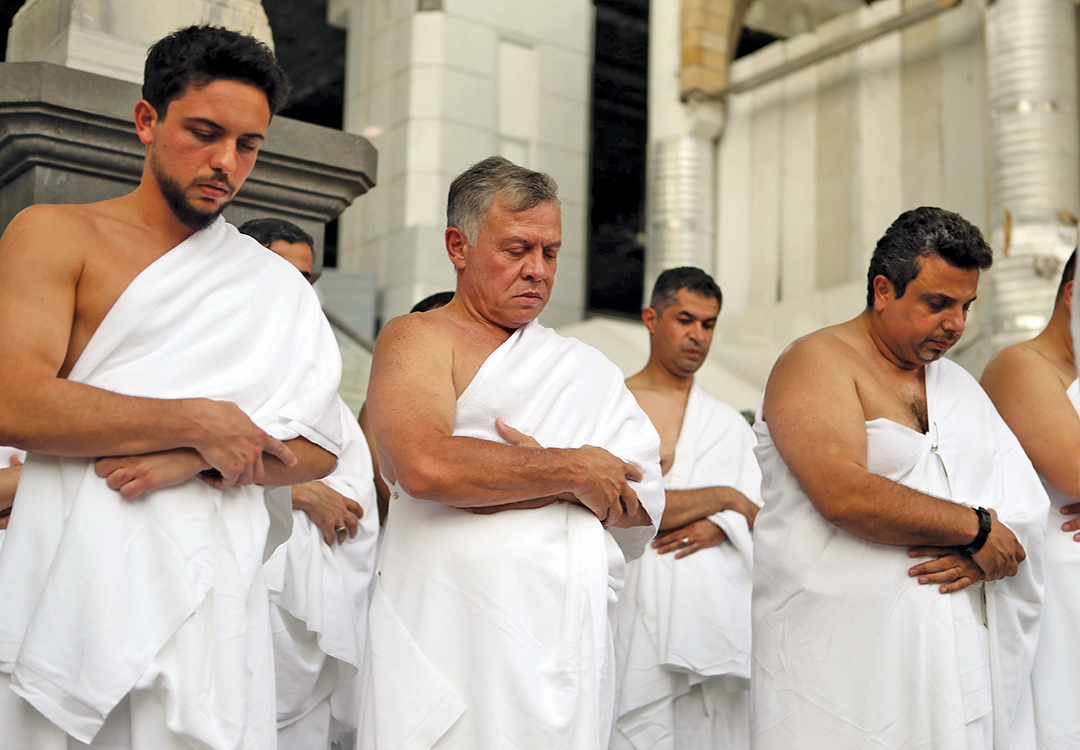The Jordan Armed Forces Specializes in Countering Ideological Extremism and Terrorism
BRIG. GEN. TALAL ALI AL-GHEBEEN, DIRECTOR OF MORAL GUIDANCE, JORDAN ARMED FORCES
 Ideological extremism and terrorism represent a global phenomenon that threatens global security and stability. It is a danger that has grown over the past 20 years, does not recognize borders or distinguish between ethnicity or religion. Its most significant feature is the speed with which it spreads and the differing and varied methods it uses to spread its ideology and reach different countries. Tremendous technological development has contributed to this state of affairs.
Ideological extremism and terrorism represent a global phenomenon that threatens global security and stability. It is a danger that has grown over the past 20 years, does not recognize borders or distinguish between ethnicity or religion. Its most significant feature is the speed with which it spreads and the differing and varied methods it uses to spread its ideology and reach different countries. Tremendous technological development has contributed to this state of affairs.
Jordan was one of the first countries to take note of this danger, warn against it and combat it, entering into international coalitions, politically and militarily, to confront it, whatever its source or type. His Majesty King Abdullah II ibn Al Hussein even ordered the preparation of a document clarifying the true moderate nature of Islam known as the Amman Message, translated into several languages.
To carry out His Majesty’s directives, the Jordan Armed Forces General Command developed a strategy to counter extremist ideology and terrorism, seeing it as an unshakable pillar of the Jordanian state and an arm that strikes extremism and terrorism with an iron fist wherever it may be. The Directorate of Media and Moral Guidance is one of the tools available to the general command for implementing this strategy of combating such threats and drying up their resources through the directorate’s Strategic Communications Unit (SCU).
The SCU is a media cell that combats extremist thought whatever its source or nature through the production of media projects based on several pillars:
First is the religious discourse that seeks to transform the ideas of those who have strayed outside the religion and to demonstrate the true nature of Islam, which utterly rejects murder and destruction and calls for centrism and moderation as stated in the Holy Quran and the Prophet’s Tradition.
Second is the nationalist pillar based on maximizing national values and strengthening the sense of good citizenship to empower young people and prevent recruitment attempts by extremist organizations. This is achieved through programs of interest to young people that strengthen them intellectually so that they can resist brainwashing attempts by extremist and terrorist groups like Daesh.
The third pillar addresses social and behavioral issues that carry within them extremist ideology inconsistent with the teachings of Islam and the social values on which Jordanian society, naturally and authentically tolerant, is founded.

Crisis response is the fourth pillar. The SCU is a media response cell that transmits internal and external messages showing that the Jordan Armed Forces and security services are capable of protecting Jordanians and defending its custodians. The SCU targets the local, regional and international communities. For example, the London-based media cell of the Global Coalition Against Daesh translated two Jordanian media projects into English and posted them on the coalition website.
The Directorate of Media and Moral Guidance has a great responsibility to strengthen the bonds of trust between the public and security personnel. It also strives to maintain the morale of Soldiers and refute enemy propaganda. The task has become more complex, with increasing challenges in the era of social media channels and asymmetric wars that draw heavily on spreading rumors and promoting extremist ideology. The directorate’s work requires constant monitoring of social media sites and exposing the lies of terrorism. Because terrorists operate around the world, peace-loving nations must standardize their moderate rhetoric and work together to defeat them. We must work in concert with our counterparts in friendly armies to standardize media rhetoric and intelligence sharing so that our message is precise and effective.
This is especially true, given that the Jordan Armed Forces has at its disposal the military’s Iftaa’ Department, which includes imams who specialize in combating extremist thought and a center to combat extremism, making us more effective in fighting extremist ideas. We work with the Iftaa’ Department to formulate effective messaging to immunize young people against extremist and alien ideas and to expose the extremist lies with forensic evidence.
The media officers and imams of the Jordan Armed Forces played a significant role in stabilizing Afghanistan and in helping the Afghan people overcome threats posed by extremists. We conducted field visits to villages and mosques; we acted as peacemakers and liaised between Western and Afghan cultures, cultivating trust and friendship so that together we could overcome the security challenge posed by violent extremist groups.
Our relationship with our partners in the U.S. military is a strong one based on trust and cooperation. We work together during joint exercises such as Eager Lion. Teams specializing in information operations also visit Jordan, and we hold joint experience-sharing workshops. We also send our personnel to attend specialized courses at U.S. bases to learn modern techniques or to study at information and psychological operations institutes.
The directorate also made an official visit in 2018 to keep abreast of the work of colleagues at the U.S. Marine Corps Base in Quantico in Virginia, the Information Operations Command, and the School of Information Operations at Fort Bragg in North Carolina, and to visit the Department of Information Operations within U.S. Central Command. The trip achieved many objectives for both sides. We learned about the work of their institutions and met our counterparts, which helped build close friendships that enabled the two teams to communicate and work together in a more streamlined manner. In addition to familiarizing ourselves with modern techniques, the visit helped develop our technical and field capabilities.
The concept of asymmetric warfare suggests there is no clear front but rather enemies hiding among populations that cannot be targeted with heavy weapons and whose hiding places cannot be easily identified. Friendly armies must therefore work together because terrorist networks have an octopus-like reach and the ability to recruit young people in areas of fragile security and cultural deprivation.
It is within this scope that, with our expertise and sociocultural background, we communicate with society and work with partners possessing modern technology. Our ultimate aim is to dry up sources of terrorist financing and strike at the top leadership. By working as an integrated team, we can complete our mission in a manner impossible if we tried to do it alone.

